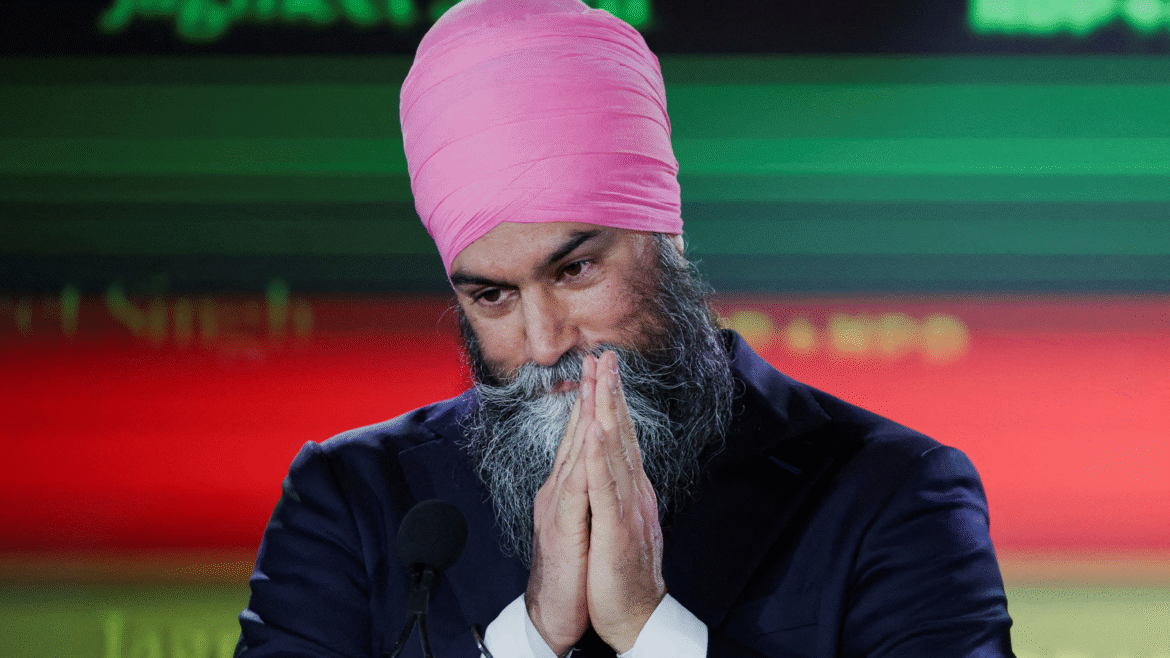AI Generated Summary
- His advocacy on issues like the 1984 anti-Sikh riots further complicated his public image in India, leading to India denying him a visa in both 2013 and 2018.
- While a variety of factors likely contributed to the NDP’s dismal performance—winning just five seats and leading in two more—the Indian-origin community, particularly those distanced from separatist ideologies, has zeroed in on one recurring theme.
- Once a rising star and the face of progressive politics as leader of the New Democratic Party (NDP), Singh now finds himself out of Parliament altogether—losing even his long-held Burnaby Central seat.
The stunning downfall of Jagmeet Singh in Canada’s 2025 federal elections has ignited widespread discussion across the country, especially within the Indian-origin diaspora. Once a rising star and the face of progressive politics as leader of the New Democratic Party (NDP), Singh now finds himself out of Parliament altogether—losing even his long-held Burnaby Central seat.
While a variety of factors likely contributed to the NDP’s dismal performance—winning just five seats and leading in two more—the Indian-origin community, particularly those distanced from separatist ideologies, has zeroed in on one recurring theme: Singh’s perceived alignment with Khalistani sympathisers.
Why no Khalistani support for Indian-Origin Jagmeet Singh in Canada election 2025?
— Augadh (@AugadhBhudeva) June 22, 2025
Jagmeet Singh’s recent defeat in Canada’s parliamentary elections has sparked intense debate, with some pointing to his alleged connection to Khalistan as a key factor.
Non-Khalistani Canadians… pic.twitter.com/647zXdx8OC
For years, Singh has faced scrutiny over his stance on Khalistani issues. Critics say his consistent avoidance of direct condemnation and, at times, vocal support for controversial figures and causes, alienated a large section of peace-loving Indo-Canadians. “He lost touch with the community’s real concerns. He allowed himself to be seen as an apologist for extremism,” said Jaspal Singh, a Vancouver resident. “That cost him dearly.”
The seeds of Singh’s Khalistan controversy go back over a decade. In 2011, he criticized Ujjal Dosanjh—Canada’s first Indian-origin provincial premier—when Dosanjh warned of rising Sikh extremism under the cover of multiculturalism. Singh dismissed these concerns and later said they influenced his decision to enter politics. His advocacy on issues like the 1984 anti-Sikh riots further complicated his public image in India, leading to India denying him a visa in both 2013 and 2018.
Despite these controversies, Singh made history by becoming the first turban-wearing MPP in Ontario in 2011 and, later, leader of a major federal party. But in 2025, the very identity politics that once helped shape his ascent may have contributed to his political downfall.
Interestingly, prominent Khalistani organizations and think tanks in Canada, usually vocal in political discourse, remained noticeably silent during and after the NDP’s collapse at the polls. Their lack of support or commentary on Singh’s defeat has raised eyebrows. Whether this silence signals a strategic retreat or a realignment of priorities remains to be seen.
Meanwhile, voices from the broader Sikh community appear ready to move forward. Harpreet Singh, another Vancouver resident, noted that the victorious Liberal Party under its new leadership has not shown overt support for the Khalistani agenda. “We hope for improved India-Canada ties,” he said. “The fringe elements have hurt the reputation of the entire community, and it’s time we restore that.”
As Jagmeet Singh steps away from leadership, the legacy of his political journey will likely be debated for years. But one thing is clear: in 2025, voters—especially Indo-Canadians—chose unity and pragmatism over polarizing rhetoric.




